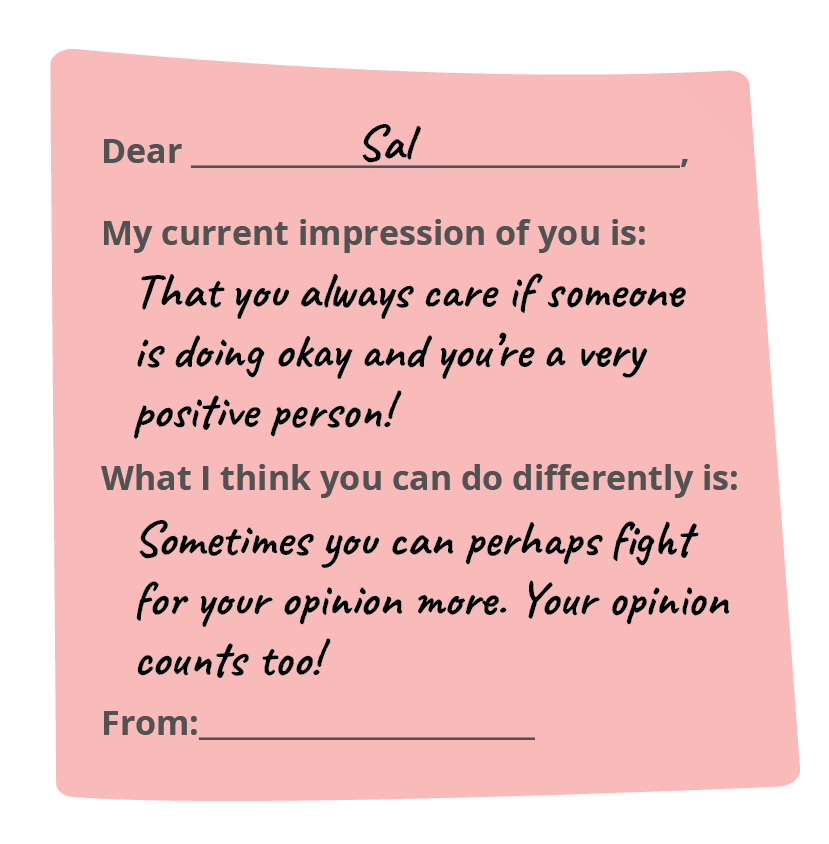Chapter 5: Closing the Project

“WE DID IT!”
Sal, Emma, Gabby, Leon: “WE DID IT, THE LAUNCH EVENT WAS AMAZING!
After a day of rest, we are now ready to close down this part of the project. Closing is the process of completing the project. Finishing a project is an accomplishment. It’s the achievement of a lot of work.”


The Closing Process
Emma: “We as a group, collectively sparked an idea, planned it, executed the plan, monitored/controlled your progress, and have now reached the closing process. In the closing process we have the opportunity to reflect upon the quality of the project deliverables, what we’ve learned about managing a project, and how well you and your team worked together.
In the closing process there is still some work to be completed as follows:
- A closing presentation is created, for some projects, to present the final report to the stakeholders (school board, the elderly home, sponsors, etc);
- We collect and store any project-related paperwork and documents (such as the project plan, completed schedule, etc.) in a project portfolio such as in a notebook or a computer. These documents become reference material for future projects, for example for new iterations of our grocery delivery service in the coming months or another event we’d like to host;
- Team members need to “sign off” on the project to verify that the project is completed;
- We’re creating a lessons learned document with team members by asking what went well, what could have been done better, and what should continue;
- We’re completing a self and peer assessment and have a chat about every person in our team on a 1-to-1 basis. We include whether we:
- Treated each other with respect,
- Shared responsibilities,
- Communicated clearly and effectively,
- Worked in an organised fashion and
- Managed time wisely.
- And, of course finally, we’re celebrating all that our team has accomplished! Regardless of the outcome, we’ve dedicated time and effort, learned a lot along the way, and should be rewarded for ALL the effort.”
Self- and Peer Assessment


Activity 11: Find the words
The words are placed horizontally and vertically. Drag the mouse over the found word to select it.”

Go to back to the Overview
Key terminology
Click on the words to expand the window and understand what they mean:
Acceptance criteria:
Activity:
Assumption:
Closing process:
Communication management:
A component of the project, program, or portfolio management plan that describes how, when, and by whom information about the project will be administered and disseminated.
Constraint:
Deliverable:
Executing process:
Initiating process:
Lessons learned:
Milestone:
Milestone planning:
Monitoring and controlling process:
Planning process:
Project:
Project Charter:
Project Management
Project Manager
Project Schedule
An output of a schedule model that presents linked activities with planned dates, durations, milestones, and resources.
Project Team
A set of individuals who support the project manager in performing the work of the project to achieve its objectives.
Scope:
Scope creep:
Sponsor:
Stakeholder:
Stakeholder register
Resource
A team member or any physical item needed to complete the project.
Risk:
An uncertain event or condition that, if it occurs, has a positive or negative effect on one or more of the project objectives.
Work Breakdown Structure (WBS):
A hierarchical decomposition of the total scope of work to be carried out by the project team to accomplish the project objectives and create the required deliverables.
